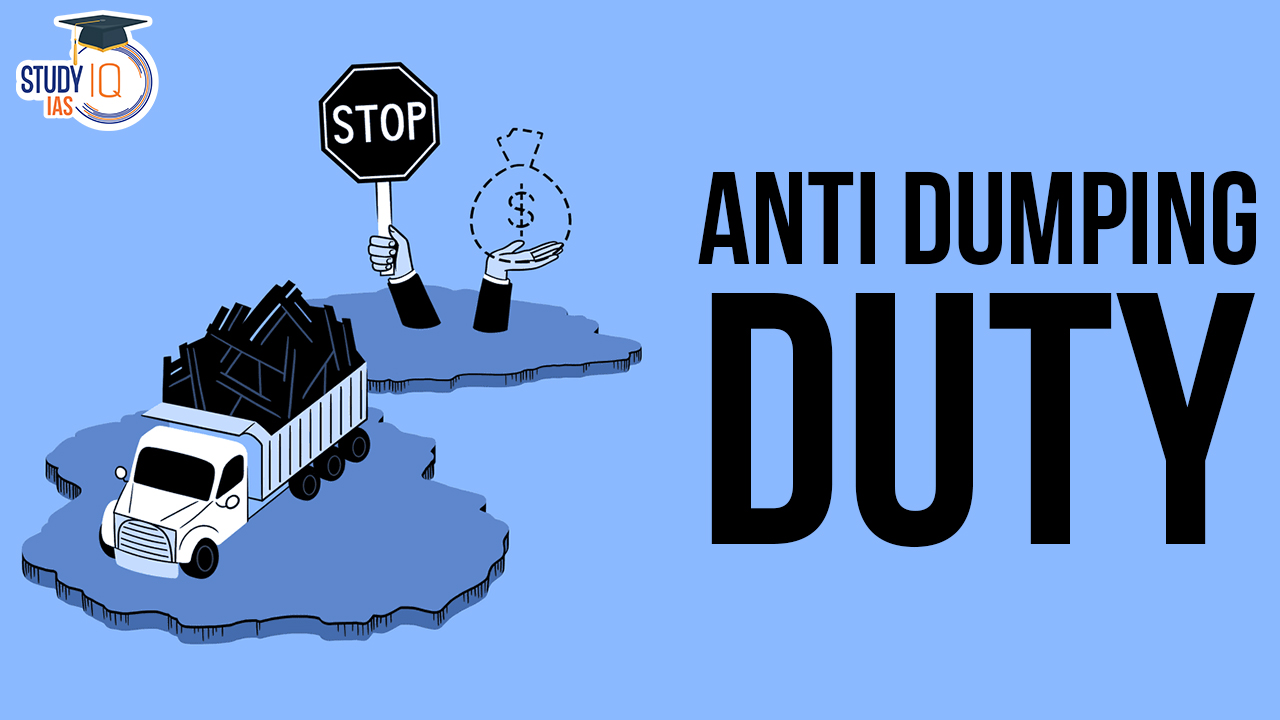Table of Contents
Context: The Directorate General of Trade Remedies (DGTR) recommended the imposition of anti-dumping duty on sodium cyanide (NaCN) imported from China, the European Union, Japan and Korea.
Over the past three financial years, the Finance Ministry has imposed anti-dumping duties (ADDs) on various goods. Notably, more than a third of these duties covered items produced by a sole domestic manufacturer or just two producers, particularly in the chemical industry.
What is Dumping?
- Dumping occurs when a country or company exports a product at a price that is lower in the foreign importing market than the price in the exporter’s domestic market.
- Essentially, it involves selling goods abroad at a significantly reduced cost compared to what they are sold for domestically.
- Dumping can provide advantages in terms of market penetration, but it remains a contentious practice in international trade due to its potential impact on fair competition and domestic industries.
- Legality: Dumping is legal under WTO rules unless the foreign country can reliably show the negative effects the exporting firm has caused its domestic producers.
- To protect their domestic industries from predatory pricing, most nations use tariffs and quotas to counter dumping.
What is Anti Dumping?
Anti-dumping duty is a tariff applied to foreign imports sold below their fair market value compared to similar domestic goods. It’s enforced by governments to counteract the “dumping” of cheaper foreign goods in the domestic market, aimed at preventing unfair competition.
Goals of Anti-Dumping
- The primary goal of anti-dumping duty is to safeguard local industries and markets from the adverse effects of such dumping, promoting fair trade practices.
- While anti-dumping duties aim to protect domestic industries, they may inadvertently result in increased prices for consumers within the country.
- This measure seeks to adjust the market distortions caused by dumping and to restore equitable trading conditions.
WTO and Anti Dumping Duty
- The World Trade Organization (WTO) sanctions the use of anti-dumping duties as a means of maintaining fair competition among nations.
- The WTO permits affected countries to initiate legal proceedings against dumping countries if there’s concrete evidence of significant harm or potential harm to the domestic industry.
- To impose such duties, the affected government must demonstrate the occurrence of dumping, quantify the dumping margin, and establish the actual or potential harm to the domestic sector.
| Important Facts |
Trade between India and China Between FY19 and FY24, India’s imports from China rose from $70 billion to $101 billion, while exports remained steady at $16 billion. |
About Directorate General of Trade Remedies (DGTR)
- Formed in: 1997
- Earlier known as DGAD (Directorate General of Anti-Dumping & Allied Duties), underwent a name change in May 2018.
- Body: It is a quasi-judicial body.
- Nodal Ministry: It operates under the Ministry of Commerce and Industry.
- Purpose: DGTR was established to consolidate efforts into a unified national body responsible for addressing various Trade Remedial actions, including anti-dumping, countervailing, and safeguard measures.
- Function: To ensure fair competition within the domestic market by protecting it against unfair trade practices such as dumping, subsidisation, and sudden increases in imports.
Countervailing Vs. Anti-Dumping Duty
| Aspect | Countervailing Duty | Anti-Dumping Duty |
| Definition | Tariffs imposed to offset the effects of foreign government subsidies on imported goods. | Tariffs imposed to prevent unfair pricing practices where foreign exporters sell goods below fair value. |
| Purpose | To neutralise the financial benefits that foreign manufacturers receive from subsidies. | To protect domestic industries from being harmed by unfairly low-priced imports. |


 Coconut Oil Taxation in India
Coconut Oil Taxation in India
 Pariksha pe Charcha 2025, Overview, Even...
Pariksha pe Charcha 2025, Overview, Even...
 National Policy on Framework on Agricult...
National Policy on Framework on Agricult...




















